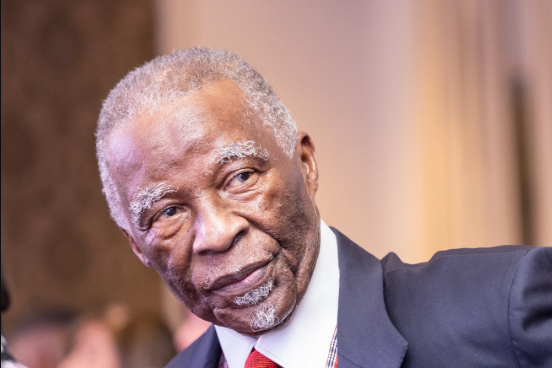South Africa has a plan to fight prejudice. But it’s full of holes

By: Loren B Landau, University of the Witwatersrand
The South African government has launched a plan aimed at addressing pervasive prejudice in the country. It’s called the “national action plan to combat racism, racial discrimination, xenophobia and related intolerance”.
A plan like this may seem redundant given that the country’s Constitution explicitly affirms lesbian, gay, bisexual, transgender, queer and intersex people. It also states that everyone has the right to a safe life within the country’s borders.
But this hasn’t translated into the desired changes on the ground. South Africa is still riddled with racial inequality, gendered discrimination and violence against non-nationals.
In the light of this, the plan is welcome.
But in our view this is an “action plan” without a plan. It offers frail remedies to poorly diagnosed problems. Of the document’s 67 pages, only nine outline actions. These include collecting better statistics, educating the public and the police and demanding official commitments to equality. There’s nothing new here. The government is already doing most of these things – or it should be.
On top of this the document puts too much blame on the country’s past. Yes, apartheid was evil. But blaming all contemporary forms of discrimination and inequality on it is a dodge. It lets post-apartheid leadership off the hook for exacerbating inequality and failing to curb emergent forms of discrimination.
Weighing the plan
The action plan has been billed as a technical framework. As it stands it offers almost no information about budgets, oversight, clear standards for measuring progress or accountability mechanisms.
Instead it relies on existing mechanisms, including the so-called Chapter 9 institutions that support the country’s constitutional democracy. But, these have proven themselves to be relatively toothless.
The most significant proposal is for the Department of Justice to undertake a study into forms of contemporary discrimination. This is long overdue and should have helped inform a more robust action plan.
Without a careful reading of discrimination in South Africa, the action plan relies on perceptions and politics rather than facts.
There is one positive. The document proposes an approach that makes it clear a range of factors affect people’s lives. These include gender, location, disability, sexual orientation and health.
But these are not followed through. Instead, half the document discusses land ownership, poverty, and economic inequality. These are discussed almost entirely in terms of old apartheid categories: black, white, coloured, and Indian. The solutions it sets out depend on a more concerted redistribution of resources and economic opportunities. These measures are welcome and necessary. Nevertheless the approach buries other forms of bias and discrimination within patterns of racialised inequality.
Passing the buck
The action plan is almost entirely one-dimensional because it focuses on rooting out contemporary forms of bias and discrimination inherited from its apartheid past. History matters. But framing all forms of discrimination as apartheid legacies blinds South Africans to the range of new forms of discrimination.
For example, by relying exclusively on apartheid era racial categories, it overlooks various patterns of discrimination within groups. And it fails to acknowledge that for many years now inequality within the black population has been greater than inequality between blacks and whites.
Another example is education. It’s true that disparate education levels were inherited after the end of formal apartheid. But responsibility for the troubling state of rural schools falls squarely on the current government. The same goes for clinics and other services.
The reliance on apartheid era racial categories also blinds citizens to other troubling aspects of South African society. One example is the almost exclusive focus on black-white inequalities and oppression. There are only two short paragraphs in the document noting ethnic or linguistic discrimination. This doesn’t make it into the “action” items, nor is there mention of discrimination by members of black communities against one another, or among themselves. And it doesn’t stop there.
Xenophobia and violence
Xenophobia has a prominent place in the plan’s title. But it’s almost totally overlooked in the actual document.
The plan briefly acknowledges xenophobic violence. What’s missing is reference to other forms of widespread discrimination against non-nationals seeking access to education, employment, housing, or life-saving medical services.
When it comes to violence, the plan rehearses familiar – but empirically questionable – claims that inequality and economic competition breed resentment and attacks on foreigners. But nowhere does it describe the gangs, community leaders, and political officials who typically foment xenophobic attacks.
The action plan similarly fails to condemn the local, provincial, and national politicians who regularly blame foreigners for their own failures to deliver services as well as economic and physical security.
Towards an effective plan
If rights and security depend on protecting everyone, then South Africans deserve a document that relies less heavily on established but unsubstantiated narratives intended to justify economic redistribution.
South Africa can’t afford to wait for economic equality before addressing its virulent and sometimes violent forms of discrimination. The origins of discrimination may be rooted in apartheid practices and mindsets, but history cannot be changed. Instead, the national action plan must address all factors – including current policies and politicians – that foster all forms of discrimination.
H. Refiloe Ogude, a doctoral candidate in public and urban policy at The New School, New York, contributed to this article.
Loren B Landau, Research Chair on Mobility & the Politics of Diversity. Migration; Urban Transformation, Xenophobia and Inclusion, University of the Witwatersrand
This article is republished from The Conversation under a Creative Commons license. Read the original article.
Written by: Natasha
Similar posts
MORE ARTICLES

WATCH: Inside Ayanda Thabethe’s ‘signing ceremony’

‘To my first and forever love’ – Minnie Dlamini celebrates her father’s 69th birthday

David Mabuza’s family shares details surrounding his passing

Thabo Mbeki slams DA’s withdrawal from the National Dialogue: ‘You could have left the GNU’

‘Heaven’s lucky to have you’ – DJ Fresh pays tribute to late ex-wife Thabiso Sikwane
QUICK LINKS
UpComing Shows

The Best T in the City
With T Bose
He has held it down in the world of mid-morning radio with the best music, riveting topics, brilliant mixes and interesting guests. Every weekday, The Best T proves why he is the BEST by connecting to you like only your bro or favourite uncle could. He lets his listeners dictate the songs they want to hear in the ever-popular Top 10 at 10, and his Three Teaspoons never run out. Catch The Best T in the City Mondays to Fridays from 09h00 to 12h00.
close
Feel Good
With Andy Maqondwana
Feel good about feeling good! That's exactly what The Feel-Good show is about. An escape from the negativity that surrounds us, indulging you in good feels. Pass it on to one and all. Spread the good feeling around Gauteng with Andy Maqondwana.
close
The Hive
With Bonolo "Bee Sting" Molosiwa
Every "Hive" needs a Queen B and Bonolo "Bee Sting" Molosiwa is Kaya 959's honey who brings in the money. With her bubbly personality, infectious laugh, Bee Sting radiates positive energy which is all you need to get your weekend off to the best start. Don't miss the Afrobeat Dancehall Ragga (ADR) Top 10 on The Hive with Bee Sting every Saturday from 18h00 - 21h00.
close

The Hive
With Bonolo "Bee Sting" Molosiwa
Every "Hive" needs a Queen B and Bonolo "Bee Sting" Molosiwa is Kaya 959's honey who brings in the money. With her bubbly personality, infectious laugh, Bee Sting radiates positive energy which is all you need to get your weekend off to the best start. Don't miss the Afrobeat Dancehall Ragga (ADR) Top 10 on The Hive with Bee Sting every Saturday from 18h00 - 21h00.
closeConnect with Kaya 959
DownLoad Our Mobile App
© 2025 Kaya 959 | On The Street On The Air










